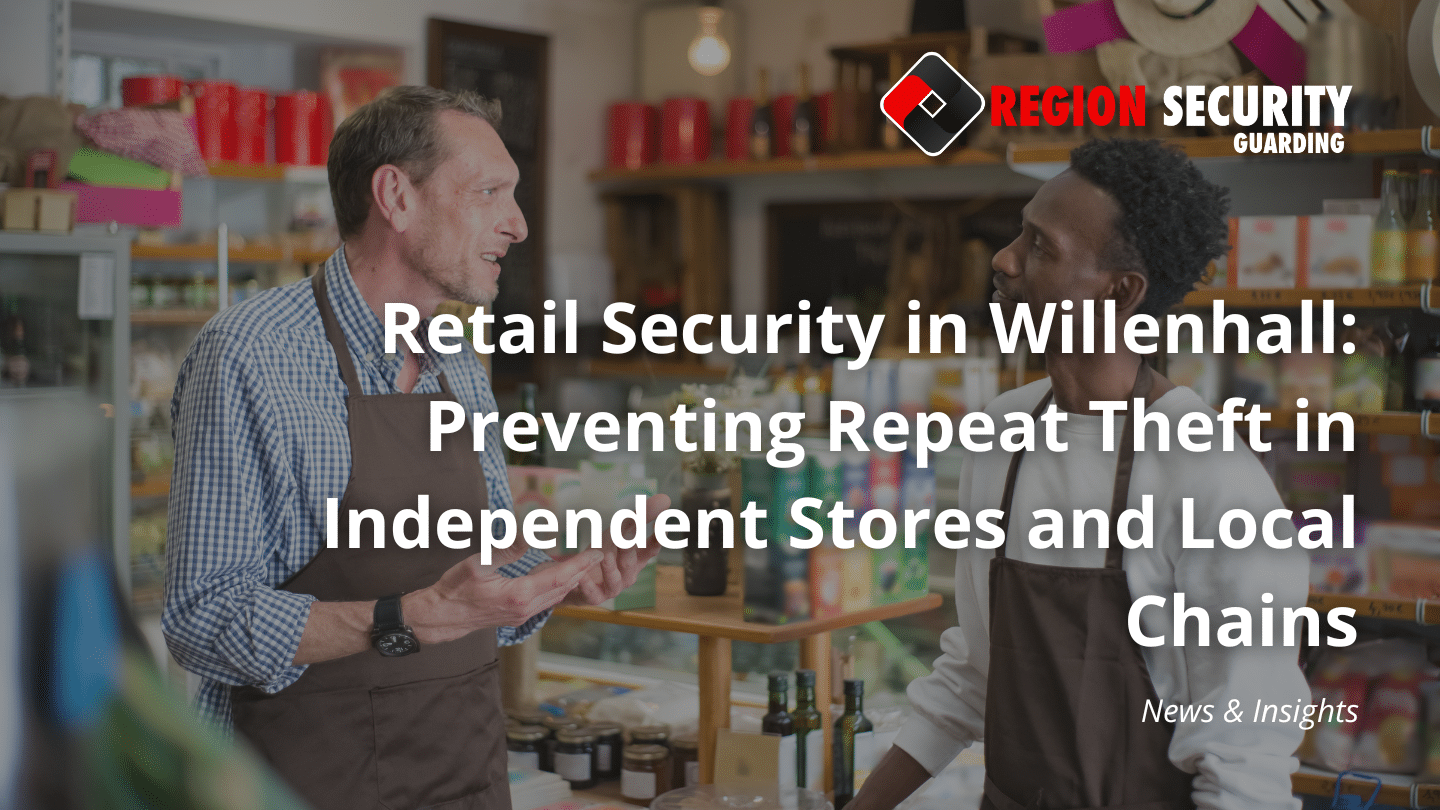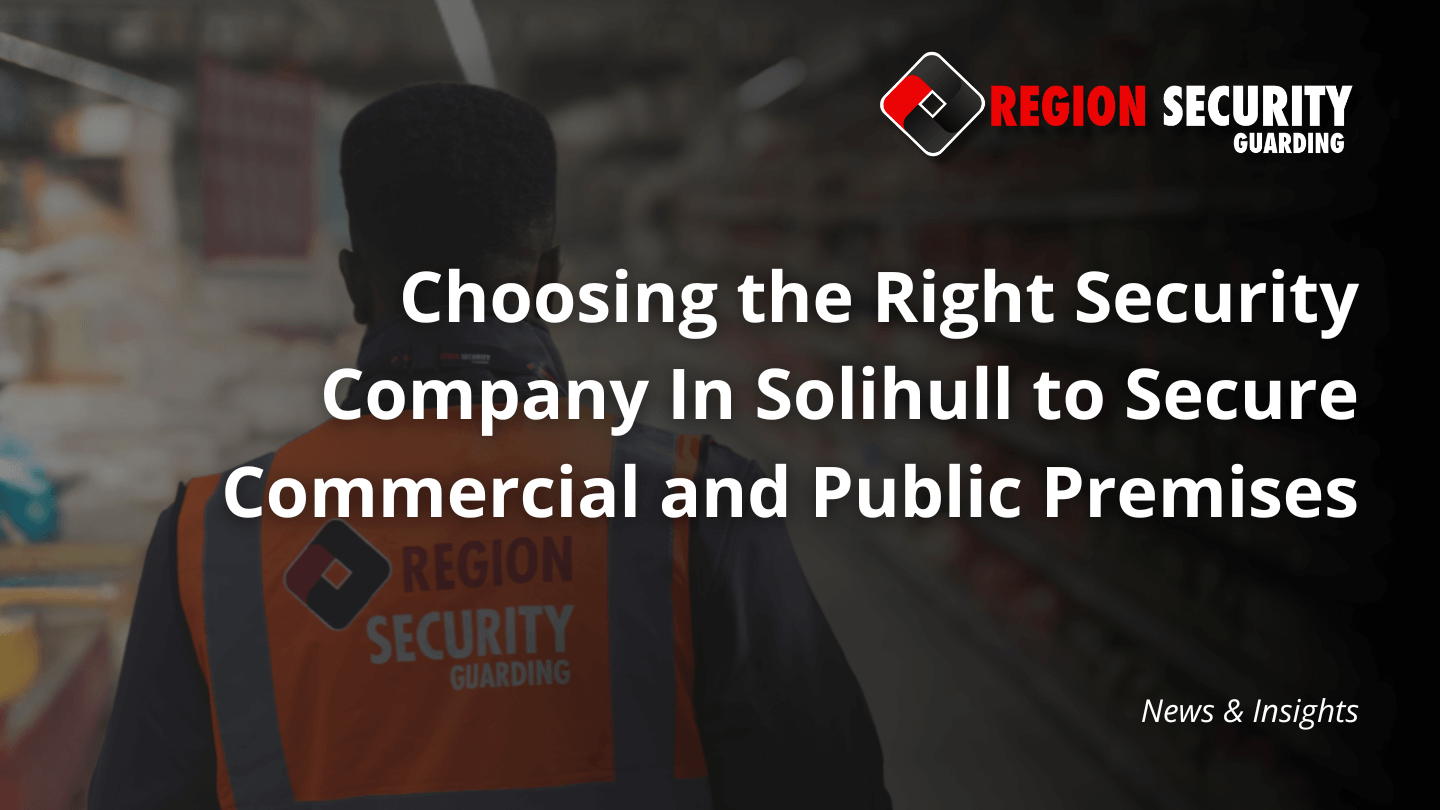Security guards are vital members of staff at any location, playing an essential role in protecting properties and ensuring the safety of everyone on-site. Whether at a construction site, retail store, or office, their presence can be the deciding factor in a business’s security an success. But what does a security guard do, and how do their duties help protect a business?
In this article, we will discuss the key responsibilities of security guards, what private security personnel are authorised to do, and the various environments where security guards work.
Table of Contents

What is a Security Guard?
Before exploring the specific duties of a security guard, it’s important to understand what a security officer is. A security guard is a licensed professional, certified by the Security Industry Authority (SIA), and hired by businesses to carry out various security-related tasks.
There are many advantages to having a security guard on-site. Guards are employed to protect businesses, people, or valuable assets. Their responsibilities often include patrolling the premises, inspecting for risks, and preventing threats such as theft, fire, vandalism, terrorism, and other illegal activities. Ultimately, the primary reason for hiring security guards is to reduce crime and enhance overall safety.
What is the Main Role of a Security Officer?
Security officers have a wide range of responsibilities, but their primary role is to protect people, buildings, businesses, and valuable assets. They achieve this by maintaining a strong and visible security presence, which serves as an immediate deterrent to potential criminals, signalling that the property is well-protected and monitored.
What Does a Security Guard Do?
In addition to providing businesses with a strong and visible security presence, security officers handle a variety of daily tasks. Below, we’ve outlined some of the most common duties and responsibilities of a security guard.
Control Access for Employees, Visitors, and Outside Contractors
Security guards are tasked with managing and monitoring access to the premises they protect. This often involves keeping detailed records of who enters and exits, along with the times of entry and departure. These details are typically documented in a logbook provided by the employer, ensuring accurate tracking and accountability.
Protect and Enforce Laws on an Employer’s Property
As a security guard, your primary responsibility is to protect the people, property, and assets on your employer’s premises while preventing unlawful activities such as theft and vandalism. If any criminal activity occurs, it is the security guard’s duty to report it to the police and take steps to preserve all evidence at the scene until authorities arrive.
Monitor Alarms and Closed-Circuit TV Cameras
Monitoring alarms and CCTV systems is a vital part of a security guard’s role. Guards use these tools to detect any suspicious activity, often overseeing footage from multiple areas within a client’s property. This responsibility requires strong focus and attention to detail, particularly during late-night shifts, making it essential for security officers to remain well-rested and alert.
Responding to Emergencies
To ensure an effective response during emergencies, security guards should conduct regular drills. These drills are essential for preparing everyone on-site and clearly outlining their roles and responsibilities during a crisis. Security guards must communicate expectations and procedures to all participants during these exercises. In the event of an actual emergency, they are responsible for promptly contacting emergency services and overseeing the safe evacuation of the premises, ensuring the safety of everyone involved.
Write Daily Reports
In certain roles, security guards may be required to write daily reports documenting their activities and any irregularities observed during their shifts. These reports typically include details such as equipment or property damage, incidents of theft, the presence of unauthorised individuals, and any unusual occurrences. Accurate reporting is essential for maintaining security records and addressing potential issues promptly.
Answering Phone Calls
A security guard may be the sole individual present on an employer’s premises during late-night hours. In such cases, they may be responsible for answering phone calls and acting as a temporary receptionist. Additionally, they are tasked with ensuring that heating systems and other electrical equipment are turned off or operating as required, preventing unnecessary energy usage or potential hazards overnight.
Preventing Criminal Acts
Strong observation skills are essential for any security officer role. These skills enable security guards to effectively prevent criminal activity by monitoring CCTV systems, conducting surveillance, performing safety audits of the premises, and investigating suspicious situations. Additionally, their presence serves as a visible deterrent to thieves and other potential criminals, reinforcing the overall security of the facility.
Assisting the Public
Interacting with the public is a key aspect of a security officer’s duties. Guards frequently greet visitors, verify their identities, and provide directions. They also ensure that individuals stay in authorised areas, such as redirecting people from restricted zones like backstage at a concert. Additionally, security guards are expected to answer questions in a police and helpful manner.
Another important role for security officers is assisting the public in educational settings, such as on college campuses. Here, they may give presentations to students on personal safety and tips for protecting their belongings from potential theft.

What Do Security Do All Day?
A common question about security guards is, “What does a security guard do all day?” While security guards have a variety of daily tasks, their primary responsibility is to provide comprehensive protection to the business that employs them. They achieve this in several ways:
- Monitoring for Criminal Activity: Guards keep a vigilant watch for any signs of suspicious behaviour. This can be done through the use of CCTV equipment, such as cameras that monitor different areas of the business, or by conducting regular patrols around the premises.
- Maintaining a Visible Security Presence: The physical presence of security guards serves as a strong deterrent to criminals. Their visible role immediately signals to potential thieves that the business is well-protected and actively monitored.
- Protecting the Business from Potential Hazards: Security guards play a key role in safeguarding the business from various risks. They regularly conduct risk assessments and patrol the premises to ensure that all potential security threats are identified and addressed.
Where Do Security Officers Work?
As mentioned earlier, security officers have a wide range of responsibilities, and their specific duties often depend on the environment in which they work. Below are some common areas where security guards are employed, along with their typical tasks:
- Retail Security: In retail settings, security officers are responsible for protecting individuals, documents, products, money, and equipment. They may collaborate with store detectives to prevent criminal activities by customers or staff.
- Business Settings: In offices, banks, hotels, and hospitals, security guards maintain order and ensure the safety of employees, clients, and property. They oversee access control and respond to any security concerns.
- Museums and Art Galleries: Guards in these settings focus on safeguarding valuable art pieces. They monitor guests, check for suspicious items, and ensure safety mechanisms are functioning properly to prevent theft or damage.
- Factory, Government, and Military Facilities: Security officers in these environments protect sensitive data, equipment, and materials. They are responsible for verifying the credentials of individuals and vehicles entering or leaving the premises.
- Colleges, Parks, and Sports Arenas: Guards in these locations manage crowd control, oversee parking and seating arrangements, and direct traffic to maintain order during events.
- Bars and Nightclubs: In bars and clubs, security officers (often referred to as bouncers) ensure that underage individuals are not allowed entry, collect entrance fees, and maintain control over customer behaviour.
- Transportation Security: Security officers working as transportation screeners protect individuals, luggage, and cargo at airports, train stations, and other transportation hubs, ensuring everything is properly accounted for and secure.
- Bodyguard Services: Security guards who work as bodyguards protect high-profile clients, including celebrities. Their duties may include driving clients to various locations, monitoring events, and ensuring safety during public appearances.
- Gaming Surveillance: Guards in gaming facilities primarily work in surveillance rooms, using video and audio equipment to monitor for suspicious activity and potential security threats within casinos and gaming areas.
What Does a Private Security Guard Do?
Private security guards are typically employed by security firms with their own dedicated departments, and businesses often hire them to provide protection. Their duties are similar to those of regular security officers, but may vary depending on the specific needs of the client.
Some of the most common responsibilities of private security guards include:
- Serving as a visual deterrent to potential criminals.
- Conducting regular patrols around buildings or sites to ensure safety.
- Using CCTV monitoring equipment to oversee various areas of the property.
What Does a Security Guard Supervisor Do?
Security supervisors hold a more senior position within the security industry and, like security guards, are responsible for providing protection to businesses or clients. However, their role also includes additional responsibilities, such as overseeing and managing a security team.
Some of the most common duties of a security supervisor include:
- Ensuring that all employees hold the appropriate SIA licences.
- Conducting security assessments at buildings or sites.
- Supervising and monitoring the performance of the security team.
- Assigning specific tasks and duties to new security guards.
- Completing incident reports and documenting any security-related events.
- Overseeing the distribution and use of security equipment.
So, What Does a Security Guard Do?
Overall, security guards perform a variety of duties, with responsibilities tailored to the specific needs of the business they work for.
If you’d like to stay updated on the latest security guard news, be sure to visit our news and insights page. There, you’ll find articles like What Are Security Guards Allowed to Carry? and Can Security Guards Detain You or Touch You?
Business Security You Can Rely On
Trusted by leading businesses nationwide for reliable, 24/7 protection.
or call 0330 912 2033

We have used Region security for quite a while now. Top notch service, great guards and helpful staff. We love our guards and the team for all of their help / work. No need to try the other companies at all."
Andy Yeomans - Jones Skips Ltd
Great company, professional services, friendly guards and helpful at times when required."
Rob Pell - Site Manager
A professional and reliable service. Always easy to contact and has never let us down with cover. No hesitation in recommending and competitively priced also. After using an unreliable costly company for several years it is a pleasure to do business with Region Security"
Jane Meier - Manager
Region Security were very helpful in providing security for our building. We had overnight security for around 4 months. The guards themselves were professional, easy to reach and adapted very well to our specific needs. Would definitely recommend Region for security needs.
Lambert Smith Hampton
Great service. Reliable and professional and our lovely security guard Hussein was so helpful, friendly but assertive with patients when needed. He quickly became a part of our team and we would love to keep him! Will definitely use this company again
East Trees Health Centre
Fantastic Service from start to finish with helpful, polite accommodating staff, we have used Region Security a few times now and always been happy with what they provide.
Leah Ramsden - Manager




